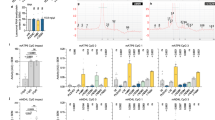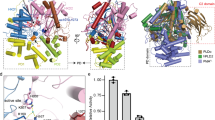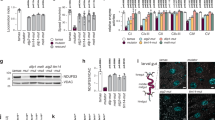Abstract
Phospholipase D (PLD) is an enzyme involved in signal transduction and widely distributed in mammalian cells. The signal transduction pathways and role for phospholipid metabolism during hormonal response in cortical collecting duct remain partly undefined. It has been reported that dexamethasone increases transepithelial transport in M-1 cells that are derived from the mouse cortical collecting duct. We investigated the expression and activity of PLD in M-1 cells. Basal PLD activity of M-1 cells cultured in the presence of dexamethasone (5 µM) was higher than in the absence of dexamethasone. Dexamethasone and ATP activated PLD in M-1 cells but phorbol ester did not stimulate PLD activity. Vasopressin, bradykinin, dibutyryl cyclic AMP, and ionomycin were ineffective in activating PLD of the cells. The PLD2 isotype was detected by immunoprecipitation but PLD1 was not detected in M-1 cells. Addition of GTPγS and ADP-ribosylation factor or phosphatidylinositiol 4,5-bisphosphate to digitonin-permeabilized cells did not augment PLD activity. In intact cells PLD activity was increased by sodium oleate but there was no significant change between dexamethasone treated- and untreated cells by oleate. These results suggest that at least two types of PLD are present in M-1 cells and PLD plays a role in the corticosteroid-mediated response of cortical collecting duct cells.
Similar content being viewed by others
Article PDF
Author information
Authors and Affiliations
Rights and permissions
This is an Open Access article distributed under the terms of the Creative Commons Attribution Non-Commercial License (http://creativecommons.org/licenses/by-nc/3.0/) which permits unrestricted non-commercial use, distribution, and reproduction in any medium, provided the original work is properly cited.
About this article
Cite this article
Kim, WJ., Lee, MJ., Park, MA. et al. Dexamethasone enhances phospholipase D activity in M-1 cells. Exp Mol Med 32, 170–177 (2000). https://doi.org/10.1038/emm.2000.28
Published:
Issue date:
DOI: https://doi.org/10.1038/emm.2000.28
Keywords
This article is cited by
-
The impact of chronic stress on the rat brain lipidome
Molecular Psychiatry (2016)



